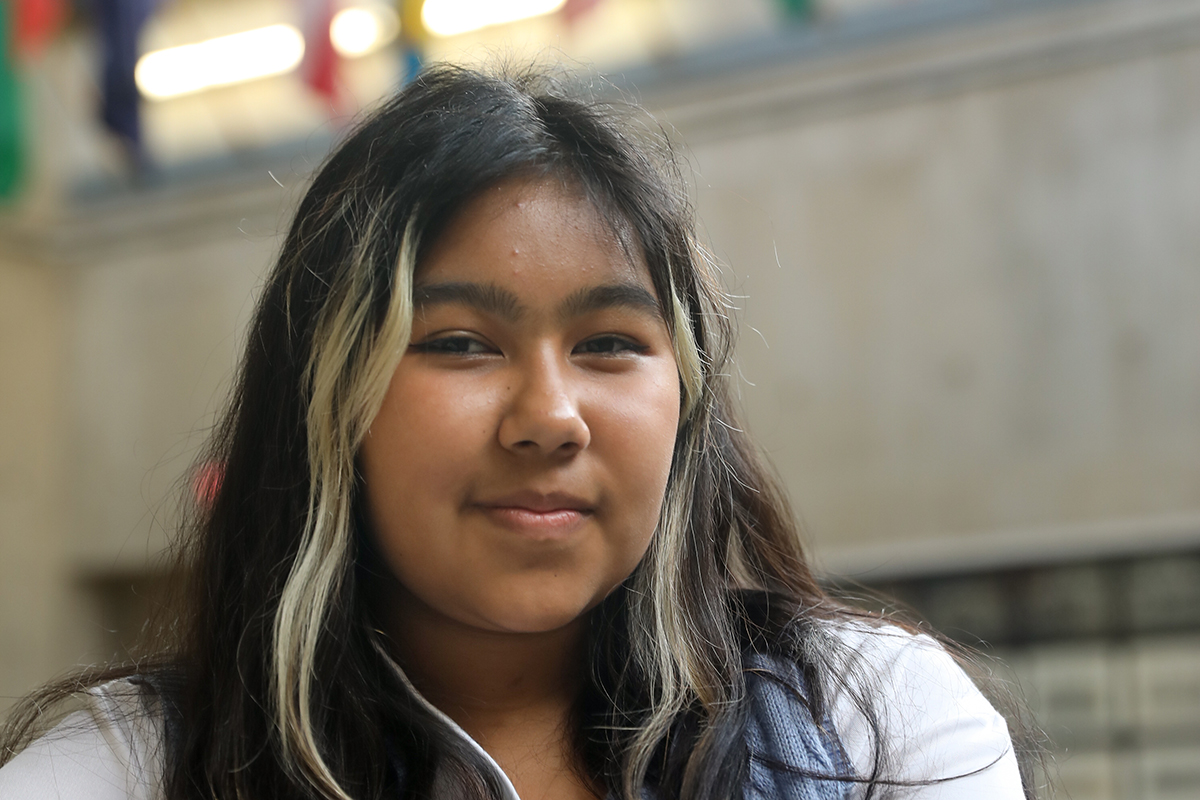Janessa Vargas

As a first-generation Mexican American, Janessa Vargas ’22 has always been aware of how pervasive questions around immigration status can be in families and communities like her own. While at home in New Jersey near the outset of the COVID-19 pandemic, she started working with Make the Road, a nonprofit organization that focuses on empowering working-class and immigrant communities. Building on that experience, Vargas dove deep into researching U.S. immigration policy this summer through a fellowship with the National Advocacy Institute at the American Civil Liberties Union (ACLU).
With Make the Road, Vargas helped people apply for Deferred Action for Childhood Arrivals (DACA), the Obama-era program that protects from deportation certain undocumented people brought tothe United States as children and allows them to work. “For my [ACLU] research proposal, I asked the question, ‘How do we achieve citizenship for people who are left out of this very specific pool that the government or politicians think are worthy or have ‘earned’ their citizenship?’” Vargas explains.
She interviewed immigration lawyers and community organizers, both in her area and in other regions of the country, to get a more complex picture of the issue. “The way I tackled the research project was bringing humanity to policy,” she says.“I would mix people’s interviews — their realities — with the law and present the human perspective. I tried to show how a lack of citizenship and a lack of stability in one’s immigration status is so pervasive inpeople’s lives, and in the lives of my family and my community.”
In July, around the time Vargas was preparing to present her research (virtually) to some 200 people, a federal judge in Texas ruled that DACA was unlawful and suspended the program. As the debate over immigration reform continues in Congress, Vargas will travel to Saint Peter’s University in New Jersey to speak at a campus event on immigration in September. She also plans to head to Washington, D.C., for events surrounding the vote on the planned budget, which she hopes will include “the pathway to citizenship for millions of people.”
Vargas rounded out her summer with a stint doing research for the Greater Good Institute, a youth-led think tank, as well as classes on literature and philosophy through the Yale Young Global Scholars Program. For good measure, she attended a five-day virtual course on critical race theory at the African American Policy Forum, led by the scholar and writer Kimberlé Crenshaw.
At Exeter, Vargas has immersed herself in the ongoing work devoted to promoting anti-racism and diversity, equity and inclusion on campus. She is head of diversity and equity for Student Council; co-head of the Afro-Latinx Exonian Society, Feminist Union and Democratic Club; and has worked as a student proctor in the Office of Multicultural Affairs. She also co-leads Model UN, which she’s been involved with since her prep year. “Like most Exonians, I’m pretty over committed,” Vargas says.“ But even though I’m spread in a lot of places, I feel like it’s all within the same area of work.”
She’s seen the positive impact of anti-racist work in the Exeter curriculum, as well as in Model UN. “I saw the board before me take accountability and take people out of spaces where they were causing harm, admit that wrong, and make clear that things need to change,” Vargas says. “Now our board is made up mostly of women of color, so I’ve seen that transformation in a club where I probably would have least expected it.”
Vargas is also excited to begin working with GLSEN (the Gay, Lesbian and Straight Education Network), a nationwide organization that seeks to protect and create positive environments for LGBTQ students in K-12 schools. “I think the crux of my Exeter career is making sure that it’s a better place for people like me after I’ve left it,” she says. Referring to the oft-quoted statement made by one of her heroes, James Baldwin, about America, Vargas says she too believes that “if you love something, then you criticize it and make it better.”
— Sarah Pruitt ’95
Editor’s note: This article first appeared in the fall 2021 issue of The Exeter Bulletin.


